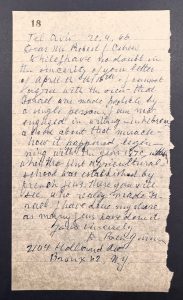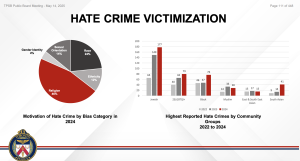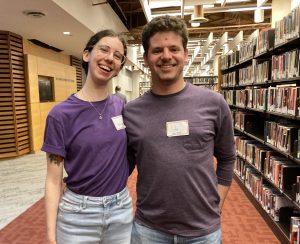At 29, Alison Levine is at the top of her game. She has reached No. 2 in the world in boccia, a sport for severely physically disabled athletes that has earned her not only medals, but more importantly, her independence.
In the last five years, she has steadily finished higher at international competitions.
Her latest triumph was a gold medal in individuals boccia at the World Open in Montreal in May, which boosted her ranking to second in the BC4 category.
Levine is considered one of Canada’s surest medal contenders at the 2019 Parapan American Games in Lima in August and the Americas Regional Championships in Sao Paolo in September.
Her accumulated points to date have virtually guaranteed her a berth at the Paralympics – her second – next year in Tokyo in the individuals category. Her goal is to compete in both the single and pairs events, and her results in Sao Paolo will determine if she qualifies.
Levine, who grew up in Côte-St-Luc, Que., had “a perfectly healthy” childhood until, at age 12, she started having symptoms of what would be diagnosed as idiopathic muscular dystrophy. She was finishing her studies at JPPS Elementary School and about to enter Bialik High School.
“It’s a disorder that get progressively worse. The nerves are not sending input to the muscles, so they get weaker. There’s a lot of uncertainty. You don’t know how fast or what part will go next,” she said.
She was eventually forced to use a wheelchair. Today, Levine’s BC4 classification means all four limbs are affected, as well as her trunk.
READ: WOMAN, 93, LOOKS BACK ON HER EXTRAORDINARY LIFE
At 15, Levine started getting into sports. First, it was horseback riding. When she could no longer do that, she played wheelchair basketball and then rugby.
She likes to say that boccia discovered her, rather than the other way around. She threw her first ball in December 2012. The next month, she was competing provincially.
Boccia is an indoor, mixed-gender sport, which is comparable to lawn bowling or bocce and is played in more than 50 countries. Levine likes to call it “curling without the ice.”
“Boccia is a game of precision that requires extreme muscle control, accuracy and intense focus and concentration,” she explained. Her strength is strategizing, she said.
“Where an opponent’s ball goes can change everything in an instant. You have to analyze the situation, decide and execute really quickly. It keeps you on your toes, or I should say wheels,” she said.
“My day chair is motorized, so I control it with a joystick. My boccia chair is a manual chair, so I push it. I don’t have much strength, so it has to be flat surface and I’m quite slow, but can still do it.”
Her first big win was a bronze in pairs at the Masters in 2014 in Portugal. She took home her first individuals hardware (a silver) at the European World Open in Poland the following year. She’s won medals each year since, competing in an average of four meets per annum.
Her fifth-place finish in individuals at the 2016 Paralympics in Rio de Janeiro was beyond her expectations. “Even qualifying was remarkable. I never thought I would make the eliminations,” she said.
César Nicolai, the Boccia Canada BC4 coach, said that, “Alison is a persevering athlete, she succeeds by investing the maximum in her sport.
“In the past year, Alison is much more focused on the field. No matter what happens, she has this ability to stay focused at all times and bounce back after a bad pitch or a bad run. Her aggressive style of play allows her to create a lot of turnovers in each of her matches.”
Learning to drive years ago gave Levine a lot of independence. Today, she rolls into her specially designed van in her wheelchair, from which she transfers to a pivoting driver’s seat. Other adaptations, such as power steering, compensate for her reduced upper body strength.
Two years ago, Levine moved into her own apartment, where around-the-clock assistance is available. This was “a terrifying leap,” but the self-confidence she has gained through sport made it doable.
“There’s no way I would be as independent as I am without sports,” she said. “It has given me the courage to fail. You realize a failure is not the end of the world.”
Levine has seen positive changes for disabled people in her young life.
Bialik accommodated her academically, she said, but “socially, it was a huge struggle.”
She spent nearly all of Grade 9 in hospital, where she studied remotely. Back in class, her schedule was modified to work around her physiotherapy appointments.
But Bialik only had a small, slow service elevator and she was not allowed to take gym class. “They were scared I might get hurt,” she said.
“I do not look back fondly on high school. I was the only student with an apparent physical disability. There was a lot of bullying; kids where not taught then about inclusivity.”
Montreal is still “years behind” other cities in terms of accessibility, she noted, and the public needs to understand that disabled people are just that – people.
First of all, she said, “don’t assume we want help – ask us. When you put a hand on my wheelchair, it’s an invasion of my space, a big no-no.”
She also gets frustrated when people speak past her to the able-bodied person she is with, assuming she has intellectual limitations, as well.
Levine was recently elected to the Canadian Paralympic Committee’s athletes’ council, a position from which she will advocate for greater opportunities for other athletes with severe impairments.
“I want to ensure we are treated with as much dignity and respect as that of other para-athletes, even though we require more help. I know that through the council, I will be able to give those of us in that situation a strong voice,” she said.
Levine has come to regard her disability as “a kind of blessing, because I do not take anything for granted. I am using my abilities while I still have them.”






